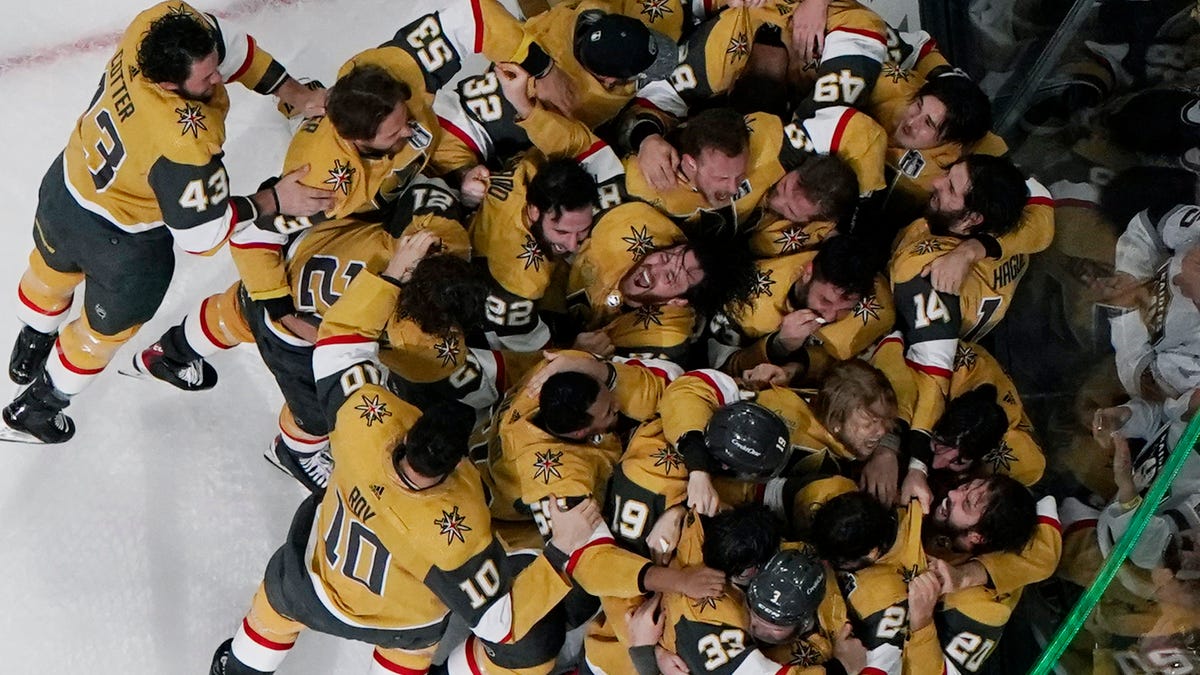NHL injuries were out of control throughout the playoffs
It’s now an NHL playoffs tradition right up there with the handshake line. Right after a team is eliminated, usually starting with the second round, and beyond, the losing team’s coach or beat reporters or both will start to announce what injuries various players had been carrying throughout the spring. The winning team can’t of course, because hockey is convinced that A. no one knows a guy is hurt and B. if they did their future opponents would hack the affected bone/muscle/tendon like it was a sequel to Scream. Broken feet, separated shoulders, fractured wrists, these are just some of the maladies we’re used to hearing guys trying to gut through.
But at some point, we should probably ask, why?
Last night, Paul Maurice revealed that Aaron Ekblad has been playing on a broken foot for nearly two months, had his shoulder dislocated twice, and a torn oblique.
Also, Radko Gudas was playing on a high ankle sprain, an injury that during the regular season would keep him out nearly two months. Matthew Tkachuk attempted to play Game 4 with a broken sternum. Sam Bennett was also carrying something pretty major that hasn’t been disclosed yet.
This is what the allure and spectacle of the NHL Playoffs has been built on. That’s why the Stanley Cup has been billed as the hardest trophy in sports to win. Because guys have to spend six weeks to two months getting through various ailments and pains, and if they won’t, then the other guy will. It’s hockey, it’s physical, it’s punishing, and you suit up, and you do it anyway because that’s what’s required.
That’s all well and good, and the nature of hockey means that it will always be a tough sport to play, especially at the top level, where guys are in unbelievable shape, bigger and stronger, and faster than they’ve ever been, but no less willing to crash into each other every other night for two months. That’s the game.
But when does it cross the line to performative? At what point is a guy playing just to say he did, and wouldn’t he be the better teammate to let someone who can actually walk take his place?
Let’s call it what it was. Ekblad and Gudas were not effective in the Final, and really some time before it. A lot of the time against Vegas, they were terrible. Ekblad was a bad penalty waiting to happen, and while Gudas’s reputation is of being a scoundrel, when healthy he is actually a very effective d-man as well who gets his team up the ice. But he has to be able to move to do that, and when he can’t he’s just a brooding pylon and you only notice him when he’s crosschecking someone in the mouth after the whistle. If you’d like to know why the Panthers got clocked in the Final, and they mostly did, it’s because half of their top four defensive corps were scarecrows for the series.
It’s understandable why a coach or team would be terrified to turn 10-15 minutes of the most important games in their lives to a player who at best has bounced between the AHL and NHL all season. But again, how much good were Ekblad, and Gudas really doing? And were they out there merely to just say they were?
To boot, I don’t even want to think about what Tkachuk would have had to take to even attempt to play with a broken sternum, especially considering that Maurice let it be known that before Game 4 someone else had to put his gear, and skates on for him.
Yes, much like the NFL, at this point it feels like informed consent in the NHL. Hockey players know, or they should, what the long-term damage may be of head injuries or how their lives may be affected by playing on broken feet will have in their 50s, and 60s, and they still won’t miss the chance at winning the Cup. But these are also hockey players, who have only known a dressing room since they were in 7th grade, so it’s worth asking how informed they might actually be.
But let’s get beyond the morality of this, or the usefulness of using broken down players, or even how this kind of bloodymindedness speaks to hockey culture’s problem of “the only thing that matters is the guys in the room” that has led to so many of the sport’s problems. If the NHL is going to continue to define itself by its playoffs, then shouldn’t the league be doing more to make sure that its teams are as close to full health and strength at the start and through them? If the playoffs are all that matter, and everyone very excited to tell the Boston Bruins that now, then they should be treated as such. The regular season should be shortened with more time between games so that players aren’t building on top of existing injuries so often. The idea of “load management” really shouldn’t be laughed at if the end result of doing so is that players are going are going to be picking up their detached limbs after shaking hands with the opponents.
Of course, this being the NHL, they’re talking about adding games to the regular season. This is apparently the way we want it, where the playoffs aren’t so much a test of who’s the best team, but which team merely can remain closest to upright the longest.
Follow Sam on Twitter @Felsgate.
For all the latest Sports News Click Here

